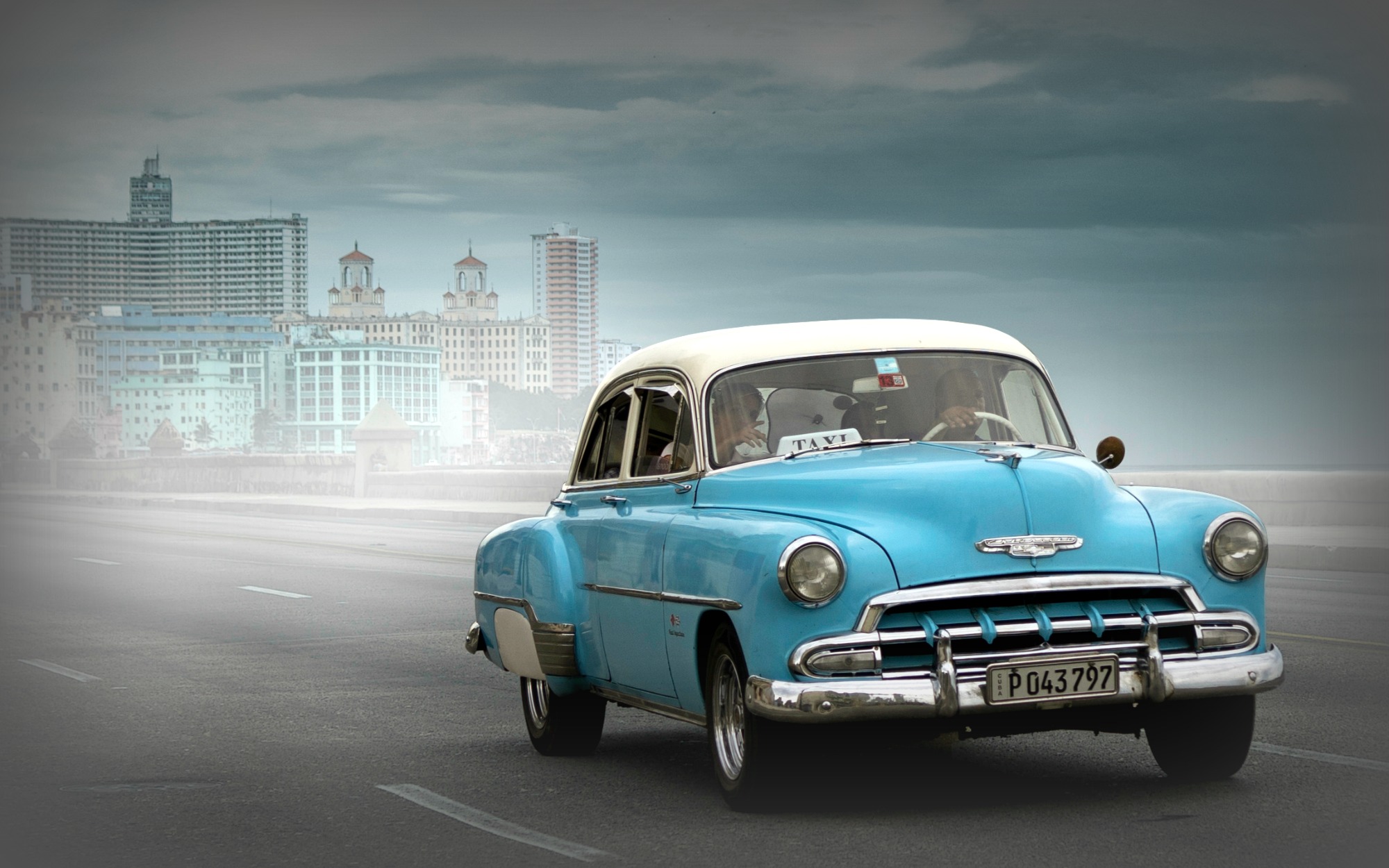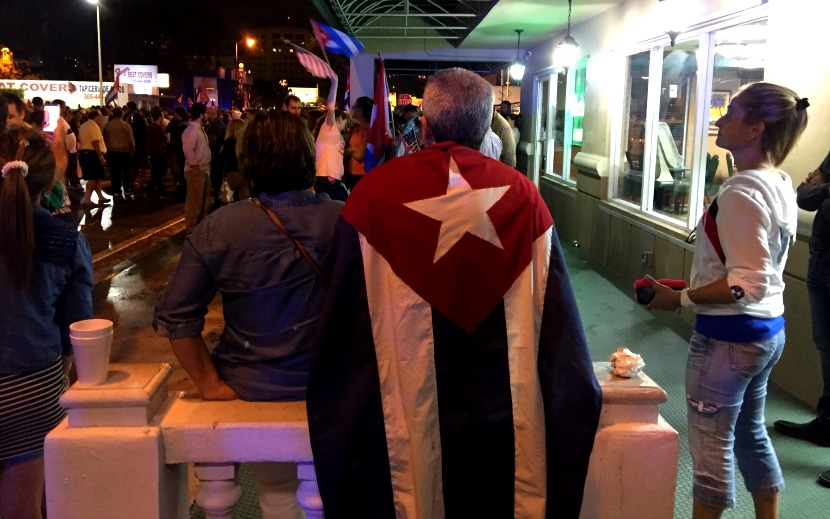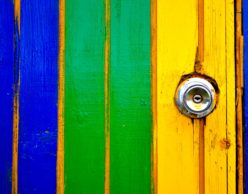Fidel Is Dead. What Now?

Some figures loom large in history. Some, in our lives. Others, inextricably, in both. With the death of Fidel Castro, the world for Cuban Americans was broken wide open. And into that opening flooded question after question. Our American Born Cuban Mash-Up Vanessa Garcia, author of White Light, one of NPR’s Best Books of 2015, examines the responsibility that comes when you have lived your life free from Fidel, but never far from his shadow.
Fidel Castro died. That’s what the text from my mother said. My fiancé, Igancio, saw it first, and spoke it out loud: “Fidel is dead,” he said, jaw-dropped. It was 1:39am, this past Saturday — a rarity that we were still awake, but we’d just come back from a Gilmore Girls party. Don’t judge.
Fidel is dead.
My first response: “Yeah, right.” I’d heard this before. I’m an ABC (American Born Cuban) and hearing rumors about Fidel Castro’s death is as common as eating roasted pig on Christmas Eve out of a Caja China. But this time, it was true. CNN, MSNBC, The New York Times — they all confirmed it. Fidel is dead. The day my parents had waited for their entire lives, the moment my grandparents had pined for – it was here. Fifty-seven years of Fidelismo gone in a flash, mortality spinning its web around contemporary politics and turning it, swiftly, into history.
Fidel is dead.
What now?

Well, first things first. “Let’s go!” I said to Ignacio, after all confirmations were in. I didn’t even have to say where. It was obvious. To Calle Ocho, or 8th Street, straight to Versailles restaurant in the heart of Little Havana. It’s the cultural hub of southwest Miami, or la sawuesera, as we call it down here. Versailles is where the Cuban-American community gathers to speak its mind and reminisce. It’s the place my parents used to take me after ballet recitals, and on Sundays for croquetas, where the waiters knew your name – a throwback to a time gone by, to a memory of Havana.
By the time we arrived there, the place was jam-packed. Miami was out on the street, celebrating. Pots and pans clacked to the beat of “Cuba Libre, Cuba Libre.” Makeshift signs were everywhere. “Satan, Fidel is now yours,” one sign read. The overall sentiment, though, was not of celebrating a person’s death — but of hope. Hope that finally the people of Cuba might have a chance to choose their own destiny.
It is the defiant hope that infused my family life. As a kid, growing up in a Cuban home in Miami, every holiday was brought in with the cheer: “Next year in Cuba.” My grandparents, like most Cuban refugees, fled Cuba believing they would return — sooner rather than later. They didn’t believe the United States would allow a Communist government to survive just 90 miles from American soil. But that was the early sixties, and the Cold War was to cast a fine frost over the Cuban exile community’s hope of return. And no, they would not return until Fidel was dead. Fidelismo had, after all, almost killed both of my grandfathers and put electroshocks into my uncle. My childhood was filled with stories of torture and escape. Stories that very clearly compared Fidel to Hitler. “No one understands,” I was told over and over again. “He’s a dictator!”
Fidel is dead. What now
And yet, the day Fidel died, no one in my family came out to celebrate, nobody was out shouting, “Next year in Cuba!” They were tired. It was me out there on Calle Ocho, joining with the community, taking it in – not them. My mother didn’t want to face this crowd. My maternal grandfather has dementia. My maternal grandmother has a faulty hip. And my father passed away long before he ever got to see this day. But I was there.
As the crowd got louder, though, I began to worry: Would the outside world, the people watching us, the American Cuban community, understand? Were we making ourselves clear?
In college, I once heard a classmate’s mother refer to Cuban-Americans (my mother and grandparent’s generation) as a group of “ridiculous” people parading the streets, screaming all the time. She was specifically referring to the Cuban-American reaction to the Elian Gonzalez debacle. Her comment stung, but it was also enlightening. For the first time, I saw my parents’ world from the outside-in, instead of from the inside-out.
My classmate’s mother couldn’t understand our self-appointed Town Hall, Versailles. She couldn’t understand why Cuban-Americans were so “loud.” I tried to explain. They are the voice, in exile, of those that cannot speak. Of those that are stuck on an island without a say. Without a vote. Without the capacity for freedom of speech.
In the United States, exiles feel a responsibility to be that voice so desperately that sometimes they scream it out, but in that guttural yell they are seen, by some Americans, as “ridiculous.” They are, to a degree, silenced.
This is what my parents meant by: “No one understands.”
I thought about all of this the following morning, as the statements of President Obama and President-elect Donald Trump were released, and my mother screamed in protest. “I will never forgive Obama!” she yelled. Mind you, this is a woman who voted for Obama twice, who traveled to Cuba with me in 2014, something some exiles would never consider doing. She is not the “hardline Cuban-American” stereotype. “He’s a dictator, Fidel is a dictator and he needs to be called that. It needs to go down in history,” she emphasized. To my mother, Obama’s words sounded a lot like Fidel saying, “History will absolve me.”
What Obama said: “At this time of Fidel Castro’s passing, we extend a hand of friendship to the Cuban people. We know that this moment fills Cubans – in Cuba and the United States – with powerful emotions, recalling the countless ways in which Fidel Castro altered the course of individual lives, families, and of the Cuban nation. History will record and judge the enormous impact of this singular figure on the people and world around him.”
Trump’s response, in contrast: “The world marks the passing of a brutal dictator who oppressed his own people for nearly six decades. Fidel Castro’s legacy is one of firing squads, theft, unimaginable suffering, poverty and the denial of fundamental human rights.”
“I can’t believe I have to say this,” said my mother, “but Trump said it better.” My mother voted for Hillary, so this was a surprise. But for many Cuban-Americans, no matter who they voted for this past election or in elections prior, Obama’s statement was lukewarm.
This is what my parents meant by: “No one understands.
The day before, my mother and I had been texting in solidarity, sending memes back and forth about Fidel’s death, registering our shock, hugging each other. Suddenly, after the president and president-elect’s statements, we were arguing. I tried to remain calm as I told her that I understood her, but that without diplomacy the world falls apart. That I understood Obama’s careful words as much as I understood her passionate ones. It’s not up to Obama to write history, he needs to make it.
My mother continued to yell.
With every yell, I grew more uncomfortable. I had seen, many years ago, my American classmate’s mother, who called my people ridiculous – I had seen her reaction. The louder the Cubans got, the less she listened. I had also, similarly, watched the recent U.S. election play out. Trump could yell, be a bully, and be called a truth-teller, but Hillary had to stay cool or she’d be called an aggressive “nasty woman.”
Is this the same thing? Is this why women were owning that tag of “nasty” all over the U.S.? Was I silencing my mother? Should I own my pots and pans, lash out against Obama, and scream? Am I responsible for the Cuban voice? Or have I become silent — been silenced — in America? What makes a Cuban? What makes a Cuban in America? What will Cuba become without Castro?
We leave off where we began. Fidel is dead. And I have nothing but questions. Except that now, for the first time in 57 years, there is, at least, the space for these questions to exist.
Who looms large in your family history? Share your story.
]If you like this story, you’ll want to dive into these too:





![[Image Description: Photo of a Black woman smiling into the camera. She has shoulder-length brown hair with gold highlights, and is wearing red lipstick and a purple shirt with a zig-zag pattern. The sunlight is shining on the side of her face.] Photo Credit: Andrea Scher](https://www.mashupamericans.com/wp-content/uploads/2021/02/Standard-New-Site-Feature-Image-Size-1140-x-400-2-248x194.jpg)